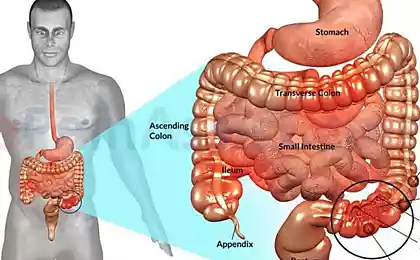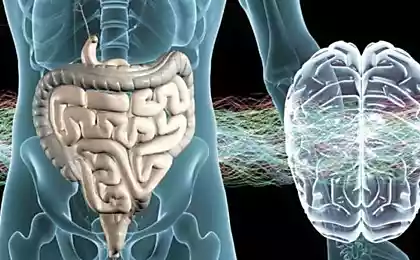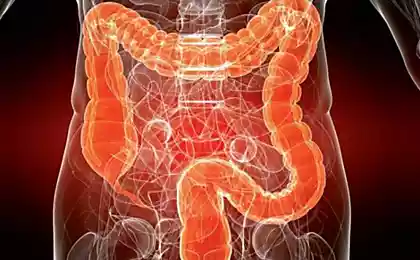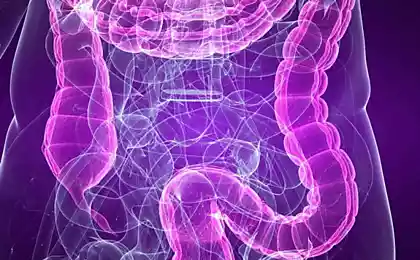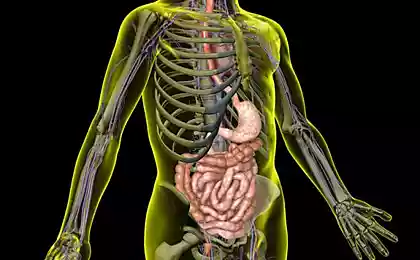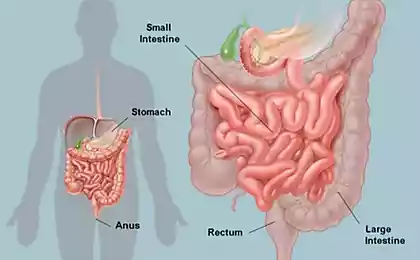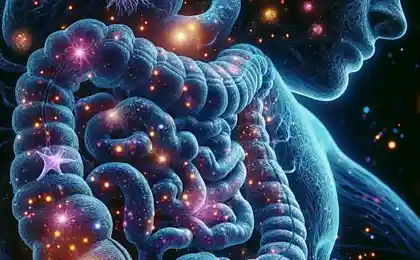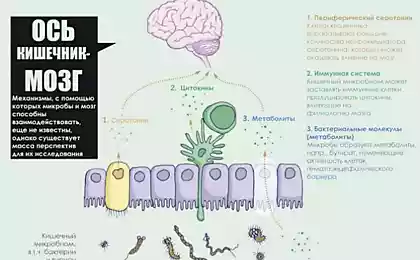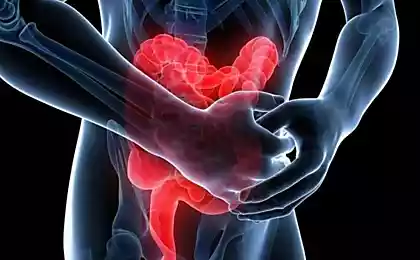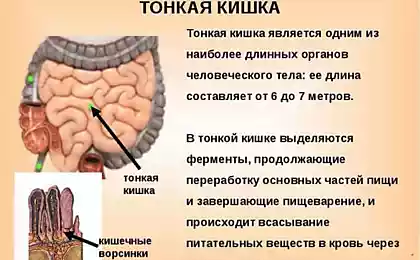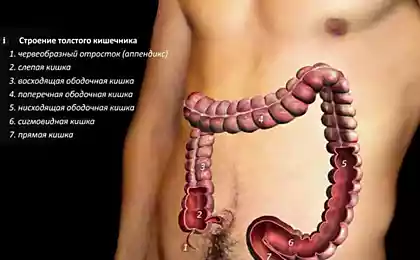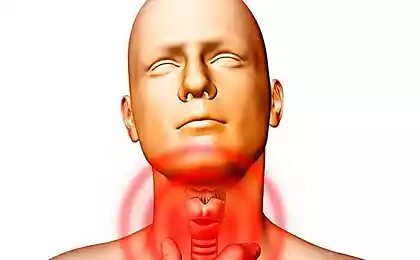470
Irritable bowel syndrome — a look naturopath
Irritable bowel syndrome(IBS) is a functional disorder of the bowels characterized by chronic abdominal pain, discomfort, bloating and irregularities in the behavior of the intestine in the absence of any organic cause. SRK is in the group of most common diseases. About 15-20 % of the adult population (around 840 million) suffer from IBS, two thirds of them women. The average age of onset is 30-40 years.
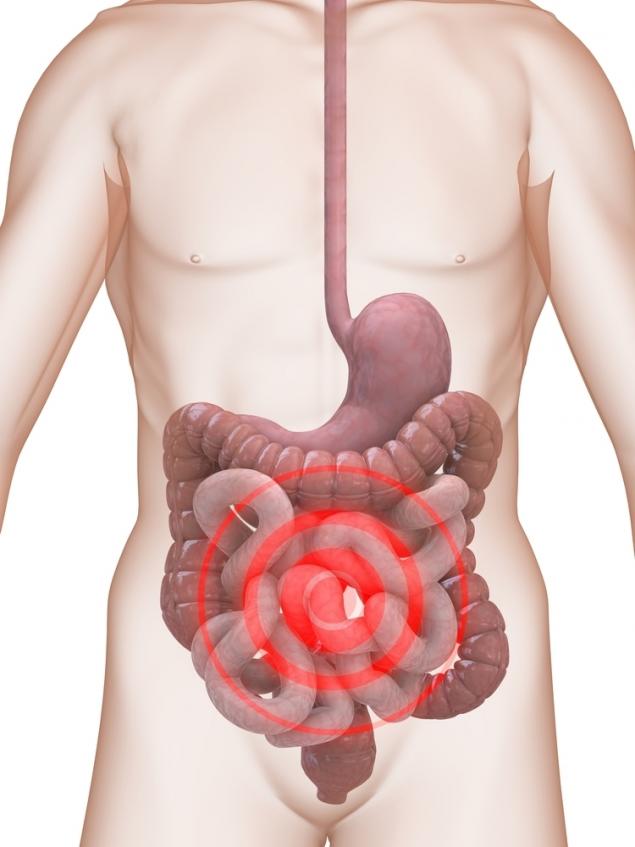
Here's how to see the causes of IBS naturopaths:
In the result of malnutrition the small intestine is populated by pathogenic microorganisms. Their excessive amount and is a common cause of IBS. The elimination of the microflora reduced IBS symptoms in 75% of patients.
Naturopaths used the device to analyze exhaled air for the presence of hydrogen and methane — the presence of these gases is a reliable sign of the presence of pathogenic microorganisms. They believe that the stool test does not show the presence of harmful microflora in the small intestine.
Symptoms of overgrowth of pathogenic microflora of the small intestine:
— flatulence, flatulence
— burp
pain and abdominal cramps
— heartburn
— nausea
— anemia
— common symptoms: headache, joint and muscle pain, fatigue, rosacea
Other problems, also related to the pathogens:
Crohn's disease, hypothyroidism, celiac disease, multiple sclerosis, lactose intolerance, chronic pancreatitis, diabetes with neuropathy, fibromyalgia, restless legs syndrome, interstitial cystitis, hepatic encephalopathy, nonalcoholic steatohepatitis.
How do pathogenic micro-organisms (a mixture of dozens of different species of bacteria) trigger the symptoms of IBS?
First, the bacteria that are found in the small intestine, fermented (fermented) food that enters the small intestine. As a result of fermentation produces hydrogen and methane. Gases produced a lot, they cause symptoms such as bloating, flatulence, belching. Gases put pressure on the intestinal wall, it causes abdominal pain and spasms (muscle reaction). Interestingly, the predominance of hydrogen is associated with diarrhea, and the predominance of methane is usually causes constipation, because methane slows the rate of movement of food in the intestine. And in the presence of hydrogen and methane you can expect diarrhea, and constipation.
Bacteria absorb nutrients from the food that descends from the stomach. First they take vitamin B12 and iron, so the body is suffering from anemia, lack of ferritin. Since the pathogenic microflora that occupies the small intestine takes all the nutrition the body gets little. A regular flow in the small intestine of new portions of the wrong foods constantly feeds the bacteria and causes even greater growth of pathogenic microorganisms.
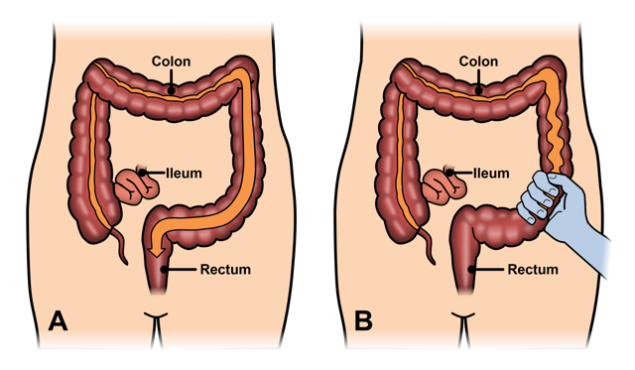
Second, pathogenic bacteria damage the intestinal wall and disturb their work. This is because the small intestine is not designed for heavy colonization by microflora, in contrast to the colon.
Damage lead to gastrointestinal and systemic symptoms. The major damaging factors is the bacterial decomposition of bile that disrupts the digestion of fats and leads to a deficiency of fat-soluble vitamins; absorption of bacterial disaccharide enzymes, which complicates the digestion of carbohydrates, causing fermentation and gas formation; damage to the walls of the intestines lead to increased intestinal permeability ("leaky gut"), and it is fraught with many system-wide symptoms, i.e. different symptoms throughout the body. published
P. S. And remember, just changing your mind — together we change the world! ©
Source: www.horosheezdorovje.ru/srk-1/

Here's how to see the causes of IBS naturopaths:
In the result of malnutrition the small intestine is populated by pathogenic microorganisms. Their excessive amount and is a common cause of IBS. The elimination of the microflora reduced IBS symptoms in 75% of patients.
Naturopaths used the device to analyze exhaled air for the presence of hydrogen and methane — the presence of these gases is a reliable sign of the presence of pathogenic microorganisms. They believe that the stool test does not show the presence of harmful microflora in the small intestine.
Symptoms of overgrowth of pathogenic microflora of the small intestine:
— flatulence, flatulence
— burp
pain and abdominal cramps
— heartburn
— nausea
— anemia
— common symptoms: headache, joint and muscle pain, fatigue, rosacea
Other problems, also related to the pathogens:
Crohn's disease, hypothyroidism, celiac disease, multiple sclerosis, lactose intolerance, chronic pancreatitis, diabetes with neuropathy, fibromyalgia, restless legs syndrome, interstitial cystitis, hepatic encephalopathy, nonalcoholic steatohepatitis.
How do pathogenic micro-organisms (a mixture of dozens of different species of bacteria) trigger the symptoms of IBS?
First, the bacteria that are found in the small intestine, fermented (fermented) food that enters the small intestine. As a result of fermentation produces hydrogen and methane. Gases produced a lot, they cause symptoms such as bloating, flatulence, belching. Gases put pressure on the intestinal wall, it causes abdominal pain and spasms (muscle reaction). Interestingly, the predominance of hydrogen is associated with diarrhea, and the predominance of methane is usually causes constipation, because methane slows the rate of movement of food in the intestine. And in the presence of hydrogen and methane you can expect diarrhea, and constipation.
Bacteria absorb nutrients from the food that descends from the stomach. First they take vitamin B12 and iron, so the body is suffering from anemia, lack of ferritin. Since the pathogenic microflora that occupies the small intestine takes all the nutrition the body gets little. A regular flow in the small intestine of new portions of the wrong foods constantly feeds the bacteria and causes even greater growth of pathogenic microorganisms.

Second, pathogenic bacteria damage the intestinal wall and disturb their work. This is because the small intestine is not designed for heavy colonization by microflora, in contrast to the colon.
Damage lead to gastrointestinal and systemic symptoms. The major damaging factors is the bacterial decomposition of bile that disrupts the digestion of fats and leads to a deficiency of fat-soluble vitamins; absorption of bacterial disaccharide enzymes, which complicates the digestion of carbohydrates, causing fermentation and gas formation; damage to the walls of the intestines lead to increased intestinal permeability ("leaky gut"), and it is fraught with many system-wide symptoms, i.e. different symptoms throughout the body. published
P. S. And remember, just changing your mind — together we change the world! ©
Source: www.horosheezdorovje.ru/srk-1/
